Homeowners often have misconceptions about NJ landscaping needs and services. Proper landscaping care and maintenance requires knowledge and experience with a variety of techniques, procedures and products, so it’s easy for people without them to become misinformed.
There are many misconceptions about landscaping care, but here are five at the top of the list.
 1. Shorter Grass Requires Less Maintenance
1. Shorter Grass Requires Less Maintenance
Mowing your lawn frequently or keeping your grass as short as possible may give you a few extra days between mowing sessions, but it can also damage your lawn. Shorter grass has a shallow root system, so the soil will dry out faster and the grass will be more susceptible to drought.
Shorter grass also allows sunshine to reach weeds easier, so they will grow and spread much faster, eventually overtaking the entire lawn.
Improper mowing is one of the most common causes of lawn damage. Regular, proper mowing promotes thicker turf, stronger grassroots and fewer weeds. So, how short should you mow? The proper mowing height depends on the grass type, time of year and growing conditions.
Cool-season grasses, common in Bergen County, should be mowed to 2 ½ to 4 inches high, and warm-season grasses should be mowed to 1 to 3 inches high. For best NJ landscaping results, follow these important mowing techniques:
Grass Height
Each time you mow your grass, it actually shocks the grass, so you should leave it tall enough to maintain healthy roots and short enough to look well-manicured. As a general rule, only take off one-third of the grass blade height with each mowing.
Mowing Direction
Don’t mow your lawn in the same direction each time, because this can compact the soil and cause grass to lean and grow in the direction it was mowed. By mowing in a different direction each time, your grass with grow taller and more upright.
Overgrown Grass
If your lawn is overgrown, don’t try to mow it down all at once. This puts stress on grass and grass roots and can kill your grass. Remove only one-third of the grass height, let the grass recover for three or four days, then take off another one-third of the height.
Wet Grass
Don’t mow your lawn when the grass is wet. Mowing wet grass causes an uneven cut that will result in a messy looking lawn. Wet grass clippings will also clog your lawn mower quickly and cause more frequent lawn mower maintenance for blades and parts.
 2. Frequent Watering Keeps Grass and Plants Greener
2. Frequent Watering Keeps Grass and Plants Greener
Frequent watering is not best for your lawn and landscape plants. Frequent, light watering can cause your grass to grow shallow, weak roots which create poor growth, especially in spring and summer sun and heat. Over-watering can set up a perfect environment for insects like sodworms, grubs and slugs that cause lawn diseases.
To stay green and healthy, your lawn and plants require about 1-inch of water every week, either from rainfall or sprinklers. It’s best to water two to three times each week to a depth of about six inches, rather than shallow watering every day.
Deep watering promotes stronger, deeper root systems that can reach farther underground for necessary water and nutrients. Here are some helpful NJ landscaping watering tips that will help promote a healthy, green lawn and landscape:
- Deep, infrequent watering is better than light, frequent watering.
- Avoid watering during the hottest part of the day, between 11 a.m. and 3 .p.m.
- Water in the morning between 6 a.m. and 10 a.m., when there’s less sun, heat and wind.
- If you can’t water in the morning between 6 a.m. and 10 a.m., water between 4 p.m. and 7 p.m.
- Don’t water at night, as it promotes mildew, fungal diseases and outdoor insects and pests.
- Sprinklers don’t always distribute water evenly, so check lawn and landscape areas for even watering that may show up as soggy grass or pools of standing water.
For proper watering, consider installing an irrigation system that uses smart controllers with sensors that only allow watering when conditions require it. Smart irrigation can save you up to 20 percent on your water bills.
You can also convert sprinkler spray nozzles to rotating type nozzles that spread heavier water droplets instead of a spray at a slower pace. Talk to a landscape professional at Borst Landscape & Design about the best NJ landscaping care and maintenance for your home.
 3. It’s Best to Fertilize in the Spring
3. It’s Best to Fertilize in the Spring
For healthy, green landscaping in NJ, it’s essential to use the right type of fertilizer, in the right amount, at the right time and in the right place. Don’t over-fertilize your lawn and landscape:
- Heavy fertilizer applications result in excessive grass and weed growth. They also increase the risks of lawn diseases and thatch buildup.
- Too much fertilizer can burn or kill your grass and plants. During periods of slow growth or dormancy, too much fertilizer can stress the turfgrass and turf roots.
- Fertilizer applications should coincide with periods of natural plant growth.
 4. Leaving Grass Clippings on the Lawn Causes Thatch
4. Leaving Grass Clippings on the Lawn Causes Thatch
There is a misconception that grass clippings left on the lawn contribute significantly to thatch buildup. Although leaving grass clippings on your lawn may not create a pristine, well-maintained appearance, they will not cause thatch or harm your lawn.
Grass clippings decompose quickly since they are mostly water. They return significant amounts of fertilizer to the lawn. Research shows that up to one-third of applied fertilizer can be recycled by simply returning clippings to your lawn.
Leaving grass clippings on the lawn flushes nitrogen back into the soil. Nitrogen, the most important nutrient for grass, encourages green growth, and grass clippings contain about 4 percent nitrogen.
This can reduce the amount of nitrogen fertilizer you need to apply every year, saving you money on NJ landscaping care and maintenance. Clippings also create an organic type of lightweight mulch that helps conserve soil moisture to prevent your lawn from suffering drought stress.
Grass clippings provide an easy way to recycle nutrients back into your lawn. They encourage healthy microorganisms and earthworms that break clippings down in just a few weeks. As long as you mow your lawn regularly, so that clippings are short, you can safely let them lie where they fall when you mow the lawn.
 5. Outdoor Pest Control Is Necessary
5. Outdoor Pest Control Is Necessary
Although insects and outdoor pests are common in every landscape, some can cause significant damage to your lawn, plants, shrubs and trees. Without outdoor pest control as part of your regular NJ landscaping services, your lawn and landscape can fall victim to a variety of outdoor pests that can destroy your lawn, plants, shrubs and trees and pose dangers for your family and pets.
Small insects that live in the soil like grub worms, army worms, chinch bugs and fire ants can cause lawn diseases. Larger outdoor pests like moles, voles, gophers, rodents and raccoons can damage your lawn and plants.
Japanese beetles and boring insects can destroy your trees. Once outdoor pests invade your landscape, they can be very difficult to eliminate without professional pesticide treatments.
An Integrated Pest Management Program (IPM) provides a way to prevent unwanted insects and pests in your landscape with natural, organic controls that help to change the balance in your landscape.
If you have existing insect and pest problems, a knowledgeable, experienced landscape professional at Borst Landscape & Design can identify the pests and offer the right pest control solutions to clear up the problems.
An IPM provides a safe, organic solution for year-round outdoor pest control that includes these NJ landscaping services:
- A property visit from an IPM specialist during the season to evaluate your lawn and landscape health.
- An inspection by an IPM specialist of your lawn, shrubs and trees at each visit, followed up by recommended treatments for insect and pest problems found.
- A detailed report after each inspection that outlines any pest problems found and how those problems were treated.

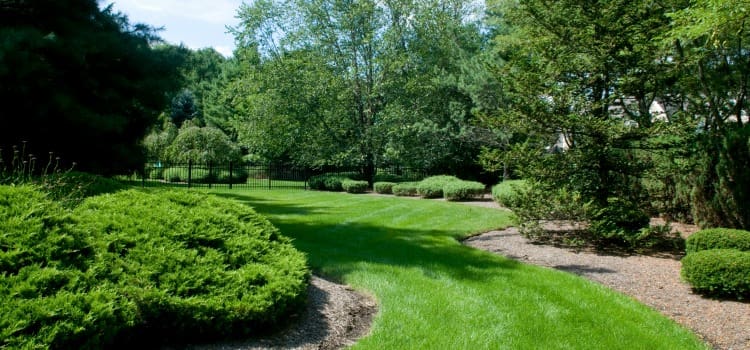 1. Shorter Grass Requires Less Maintenance
1. Shorter Grass Requires Less Maintenance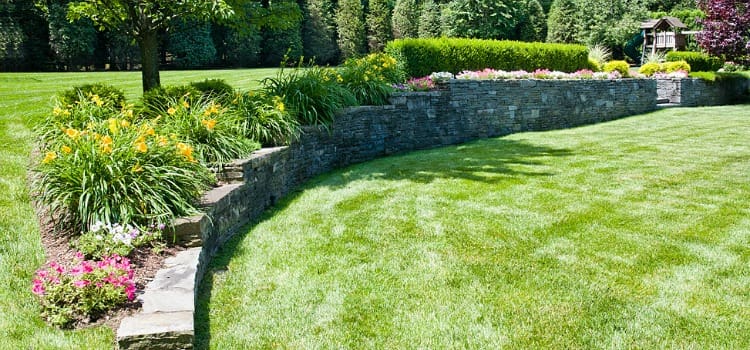 2. Frequent Watering Keeps Grass and Plants Greener
2. Frequent Watering Keeps Grass and Plants Greener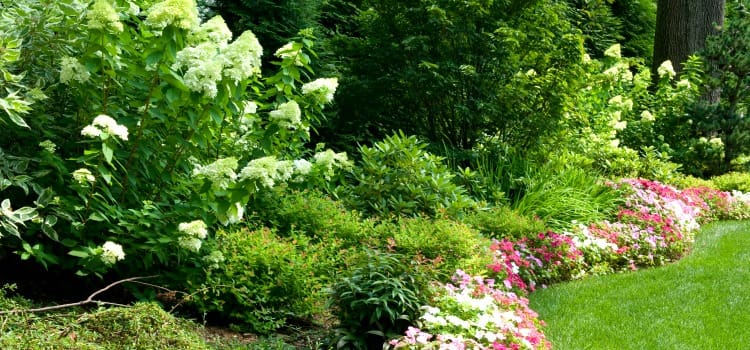 3. It’s Best to Fertilize in the Spring
3. It’s Best to Fertilize in the Spring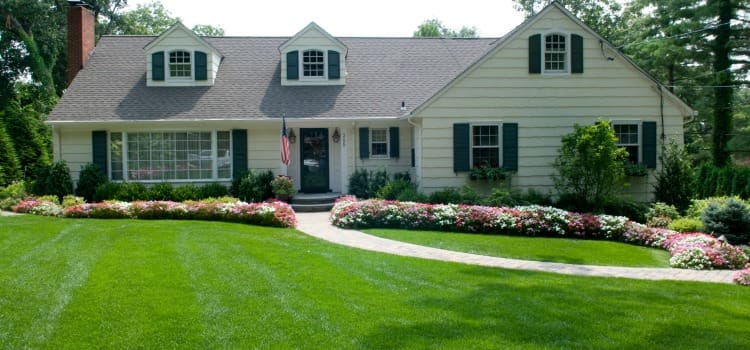 4. Leaving Grass Clippings on the Lawn Causes Thatch
4. Leaving Grass Clippings on the Lawn Causes Thatch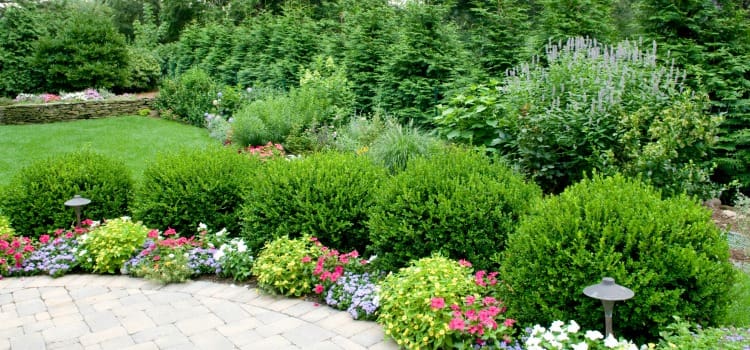 5. Outdoor Pest Control Is Necessary
5. Outdoor Pest Control Is Necessary